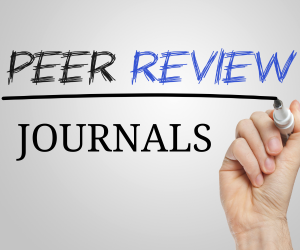ASSOCIATION TYPE 2 DIABATES MELLITUS AND GASTRIC CANCER: THE SYSTEMATIC REVIEW
Keywords:
Diabetes Mellitus, Gastric Cancer, Hyperglycemia, OncogenAbstract
Gastric cancer is one of the most common types of malignant gastrointestinal tumors, and its incidence rates are climbing at an alarming rate, making it one of the most common forms. It is known as radical resection, and it is the only treatment for stomach cancer that has been demonstrated to be successful. Previous studies have established a correlation between obesity and an increased danger of acquiring cancers of the stomach and heart. Insulin resistance and the resultant hyperinsulinemia have been presented as possible causes for this syndrome. Insulin sensitivity has also been postulated. Even though obesity was not found to be directly linked to non-cardiac gastric cancer, insulin resistance may potentially play a role in the development of diabetes-related gastric cancer. This is the case despite the fact that insulin resistance may have a role in the development of diabetes-related gastric cancer. Hyperglycemia, also known as high blood sugar, can promote the growth, proliferation, invasion, and migration of cancer cells. This is especially true for cancers that affect the breast, liver, bladder, pancreas, colorectum, and endometrium. An in vitro and in vivo study discovered that it can also promote the proliferation and growth of human gastric cancer cells while also developing chemoresistance to the chemotherapeutic agent 5-fluorouracil in GCa cells. These findings were made public in the journal Cancer Research. Diabetes has been linked repeatedly to an increased likelihood of developing stomach cancer, according to research. This demonstrates the need of ensuring that the therapies used to lower the patient's blood sugar levels are carried out in the most effective manner possible.
References
Tseng C-H. Pioglitazone and bladder cancer in human studies: is it diabetes itself, diabetes drugs, flawed analyses or different ethnicities? J Formos Med Assoc. 2012;111(3):123–31.
International Diabetes Federation. Diabetes. Brussels: IDF; 2017.
Giovannucci E, Harlan DM, Archer MC, Bergenstal RM, Gapstur SM, Habel LA, et al. Diabetes and cancer: a consensus report. Diabetes Care. 2010;33(7):1674–85.
Sung H, Ferlay J, Siegel RL, Laversanne M, Soerjomataram I, Jemal A, et al. Global Cancer Statistics 2020 : GLOBOCAN Estimates of Incidence and Mortality Worldwide for 36 Cancers in 185 Countries. Vol. 71. 2021.
Nagini S. Carcinoma of the stomach: A review of epidemiology, pathogenesis, molecular genetics and chemoprevention. World J Gastrointest Oncol. Juli 2012;4(7):156–69.
Yoon JM, Son KY, Eom CS, Durrance D, Park SM. Pre-existing diabetes mellitus increases the risk of gastric cancer: a meta-analysis. World J Gastroenterol. Februari 2013;19(6):936–45.
Torre LA, Bray F, Siegel RL, Ferlay J, Lortet-Tieulent J, Jemal A. Global cancer statistics, 2012. CA Cancer J Clin.
;65(2):87–108.
Jemal A, Bray F, Center MM, Ferlay J, Ward E, Forman D. Global cancer statistics. CA Cancer J Clin. 2011;61(2):69– 90.
Yang H-J, Kang D, Chang Y, Ahn J, Ryu S, Cho J, et al. Diabetes mellitus is associated with an increased risk of gastric cancer: a cohort study. Gastric Cancer [Internet] 2020;23(3):382–90. Tersedia pada: https://doi.org/10.1007/s10120-019-01033-8
Zheng J, Rutegård M, Santoni G, Wallner B, Johansson I, Sund M, et al. Prediabetes and diabetes in relation to risk of gastric adenocarcinoma. Br J Cancer [Internet] 2019;120(12):1147–52. Tersedia pada: https://doi.org/10.1038/s41416-019-0470-1
Zhou Y, Wang Y, Wang S, Shen L. Hyperglycemia promotes human gastric carcinoma progression via aquaporin 3. Dig Dis Sci. 2015;60(8):2338–45.
Cheung KS, Chan EW, Chen L, Seto WK, Wong ICK, Leung WK. Diabetes Increases Risk of Gastric Cancer After Helicobacter pylori Eradication: A Territory-Wide Study With Propensity Score Analysis. Diabetes Care [Internet]
Juli 2019;42(9):1769–75. Tersedia pada: https://doi.org/10.2337/dc19-0437
Forman D, Burley VJ. Gastric cancer: global pattern of the disease and an overview of environmental risk factors. Best Pract Res Clin Gastroenterol. 2006;20(4):633–49.
Sugisawa N, Tokunaga M, Tanizawa Y, Bando E, Kawamura T, Terashima M. Intra-abdominal infectious
complications following gastrectomy in patients with excessive visceral fat. Gastric cancer Off J Int Gastric Cancer Assoc Japanese Gastric Cancer Assoc. April 2012;15(2):206–12.
Jee SH, Ohrr H, Sull JW, Yun JE, Ji M, Samet JM. Fasting serum glucose level and cancer risk in Korean men and women. Jama. 2005;293(2):194–202.
Inoue M, Iwasaki M, Otani T, Sasazuki S, Noda M, Tsugane S, et al. Diabetes mellitus and the risk of cancer: results from a large-scale population-based cohort study in Japan. Arch Intern Med. 2006;166(17):1871–7.
Khan MMH, Mori M, Fujino Y, Shibata A, Sakauchi F, Washio M, et al. Site-specific cancer risk due to diabetes mellitus history: evidence from the Japan Collaborative Cohort (JACC) Study. Asian Pacific J Cancer Prev. 2006;7(2):253–9.
Olefson S, Moss SF. Obesity and related risk factors in gastric cardia adenocarcinoma. Gastric cancer.
;18(1):23–32.
El–Serag HB, Hampel H, Javadi F. The association between diabetes and hepatocellular carcinoma: a systematic review of epidemiologic evidence. Clin Gastroenterol Hepatol. 2006;4(3):369–80.
Lee YY, Derakhshan MH. Environmental and lifestyle risk factors of gastric cancer. Arch Iran Med. 2013;16(6):0.
González CA, Pera G, Agudo A, Bueno‐de‐Mesquita HB, Ceroti M, Boeing H, et al. Fruit and vegetable intake and the risk of stomach and oesophagus adenocarcinoma in the European Prospective Investigation into Cancer
Peleteiro B, Barros S, Castro C, Ferro A, Morais S, Lunet N. Worldwide burden of gastric cancer in 2010 attributable to high sodium intake in 1990 and predicted attributable burden for 2030 based on exposures in 2010. Br J Nutr.
;116(4):728–33.
Li W, Zhang X, Sang H, Zhou Y, Shang C, Wang Y, et al. Effects of hyperglycemia on the progression of tumor diseases. J Exp Clin Cancer Res. 2019;38(1):1–7.
Downloads
Published
Issue
Section
License

This work is licensed under a Creative Commons Attribution 4.0 International License.
Licensing
Ninety Nine Publication publishes articles under the Creative Commons Attribution 4.0 International License (CC BY 4.0). This licensing allows for any use of the work, provided the original author(s) and source are credited, thereby facilitating the free exchange and use of research for the advancement of knowledge.
Detailed Licensing Terms
Attribution (BY): Users must give appropriate credit, provide a link to the license, and indicate if changes were made. Users may do so in any reasonable manner, but not in any way that suggests the licensor endorses them or their use.
No Additional Restrictions: Users may not apply legal terms or technological measures that legally restrict others from doing anything the license permits.





